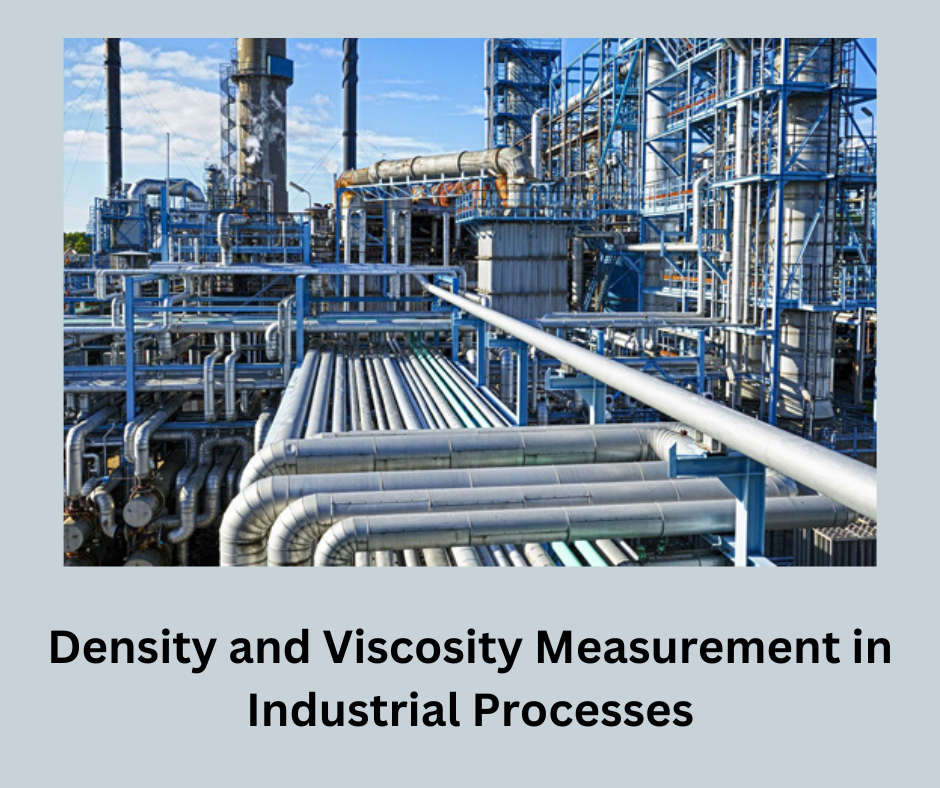Exploring Density and Viscosity Measurement in Industrial Processes
In the complex world of industrial operations, precision and control are non-negotiable. Two essential properties that are critical to achieving this balance are density and viscosity. These physical traits serve as the backbone for understanding and fine-tuning various processes across industries, from chemical manufacturing and food processing to oil refining and pharmaceuticals.
Density, defined as mass per unit volume, and viscosity, the fluid's resistance to flow, are pivotal parameters that affect product quality, process efficiency, and overall operational success. This article takes you on a deep dive into the importance of density and viscosity measurement in industrial settings, exploring the foundational principles, measurement techniques, and their profound impact on process optimization.
---

## The Significance of Density and Viscosity in Industrial Processes
### Efficiency Enhancement
Optimizing density and viscosity is crucial for ensuring smooth fluid movement within industrial systems. Whether it’s pumping, mixing, or transporting materials, precise control of these properties is the key to streamlining operations and maximizing productivity.
### Quality Assurance
In sectors like food processing, maintaining specific densities and viscosities ensures uniformity and quality in the final product. Similarly, in chemical and petrochemical industries, accurate measurements are vital to guarantee the desired chemical compositions and characteristics.
### Process Safety
Understanding density is vital for proper material dosing, preventing overloading and spills. Meanwhile, viscosity measurements are critical in assessing the lubrication capacity of fluids, which is essential for machinery performance and safety.
---
## Role of Pressure Transmitters and Differential Pressure Transmitters
Among the many tools used in industrial processes, pressure transmitters and differential pressure transmitters stand out as indispensable for gauging and managing density and viscosity. These instruments bring unparalleled precision and reliability to the measurement of these crucial parameters.
### Pressure Transmitters
These devices excel at measuring fluid pressure at specific points in a process, offering a foundational method to indirectly assess density. By calibrating pressure transmitters appropriately, the density of a fluid can be inferred, enabling accurate control of composition and concentration.
### Differential Pressure Transmitters
Differential pressure transmitters shine when it comes to viscosity measurement, leveraging Poiseuille's law. By gauging the pressure difference across an obstruction—such as an orifice plate—these transmitters allow for the calculation of viscosity, which is essential for maintaining flow rates and ensuring equipment longevity.
---
## Measuring Density Using Pressure Transmitters
Pressure transmitters play a pivotal role in indirectly measuring the density of fluids within industrial processes. This is achieved through the principles of fluid statics, where pressure at a specific depth in a fluid column is directly proportional to its density.
### Fluid Column Height
As the height of the fluid column increases, so does the pressure at the bottom of the column. This pressure is directly related to the weight of the fluid above that point, which in turn is proportional to the fluid's density.
### Calibrated Relationship
Through careful calibration, pressure transmitters establish a clear relationship between the measured pressure and the actual density of the fluid. This calibrated relationship allows for the inference of density based on pressure readings.
---
## The Importance of Accurate Calibration for Reliable Density Measurements
Accurate calibration is the cornerstone of reliable density measurements using pressure transmitters. Calibration defines a precise relationship between pressure readings and the actual density of the fluid being measured.
### Factors Impacting Calibration
- **Fluid Properties:** Different fluids exhibit unique behaviors, and their properties can affect calibration. Variations in temperature, viscosity, and composition must be considered to ensure accuracy.
- **Environmental Conditions:** Changes in ambient temperature and pressure can influence the performance of pressure transmitters. Regular calibration, often adjusted for environmental conditions, is necessary to maintain accuracy over time.
---
## Measuring Viscosity Using Differential Pressure Transmitters
Differential pressure transmitters are instrumental in indirectly measuring viscosity based on Poiseuille's law, which explains the flow of a viscous fluid through a tube.
### Obstruction in Flow
A constriction, such as an orifice plate or a capillary tube, is introduced in the fluid flow path. This obstruction creates a pressure drop across the constriction.
### Flow Rate and Viscosity Relationship
According to Poiseuille's law, the flow rate of a fluid is directly proportional to the pressure drop and inversely proportional to viscosity. As viscosity increases, the flow rate decreases, leading to a higher pressure drop.
### Pressure Differential Measurement
Differential pressure transmitters measure the pressure difference across the constriction, providing data that correlates with the viscosity of the fluid.
---
## Industries Where Viscosity and Density Measurement is Critical
Several industries rely heavily on viscosity and density measurements:
- **Chemical Industry:** Key parameters in chemical reactions and formulation processes, ensuring accurate proportions and consistent product quality.
- **Food and Beverage Industry:** Vital for achieving desired textures and consistencies in products like sauces, beverages, and dairy items.
- **Pharmaceutical Industry:** Crucial in ensuring accurate drug formulations and dosage control.
- **Paints and Coatings Industry:** Essential for achieving the right thickness and consistency for proper application and adherence.
- **Automotive Industry:** Critical for proper lubrication of engine components, optimizing efficiency, and reducing wear.
- **Oil and Gas Industry:** Essential in pipeline transportation of crude oil, influencing flow rates and preventing operational issues.
- **Water Treatment:** Used to optimize the dosing of treatment chemicals for effective purification.
---
At The Transmitter Shop (TTS), we offer superior quality remanufactured transmitters, gauges, and control valves from reputable brands like Fisher Vee-Ball and Rosemount. For more information, contact us at +1-888-964-8837 or [email protected].
---
**Related Posts**
- What Are the Steps Involved in Calibrating Pressure Gauges?
- All Important Questions on Reconditioned Transmitters Answered
- Is a Remanufactured Transmitter a Better Option Than a New One?
- Differential Pressure Transmitters: How Do They Help in Flow Measurements?
This blend of technology and industry continues to drive operational excellence, paving the way for seamless fluid dynamics management in industrial processes.
Yutian Jifu Paper Products Co., Ltd. , https://www.yutianjifu.com